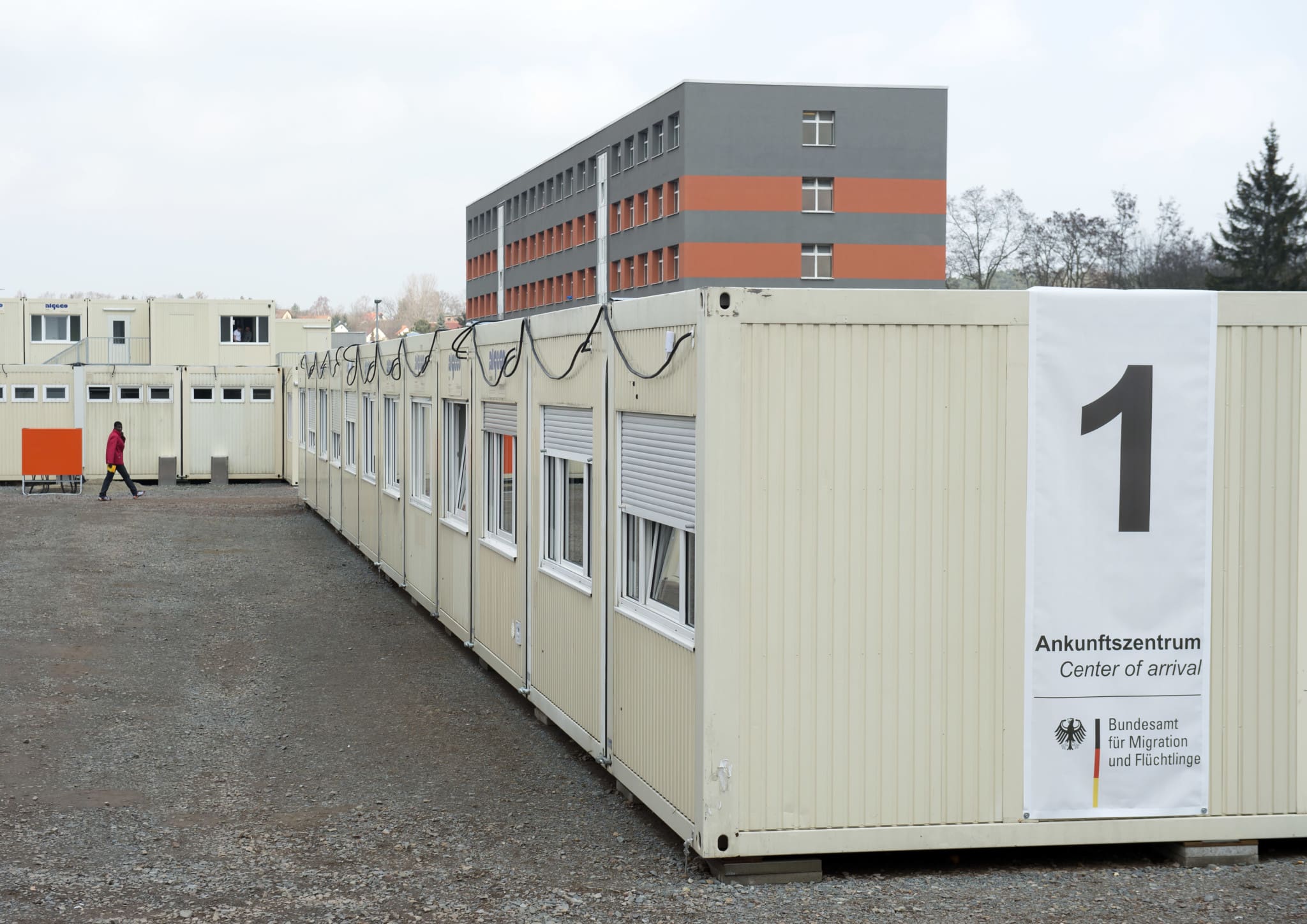As the immigration crisis worsens in Germany, many rural areas of the country, including smaller villages, are being transformed against the wishes of residents. The latest case comes from Uphal, a village of 500 residents in the German state of Mecklenburg-Vorpommern, where a container village for up to 400 migrants is being constructed amid ongoing protests.
Although it is often the case that politicians from the left are pushing mass immigration in such areas, in the case of Uphal, a Christian Democratic Union (CDU) politician is responsible for bringing in up to 400 migrants, predominately from Islamic countries. There, the district administrator, Tino Schomann, has been vocal about the need for the container village. Last week, he appeared before the press to say that the migrant container village will be finished “if possible, by the end of September,” after sewage connections are completed and furniture added to the containers.
At that time, “the first asylum seekers should already move in,” said Schomann.
However, the community is actively working against the plans and is suing the government to stop the container project yet again. Despite this opposition, Schomann says the construction work is “running at full speed,” after work was paused for several months. Currently, many of the migrants are housed in a sports hall in Wismar, and the plan is to have the migrants moved into the container village around the time the school year starts, in order to provide students with access to sports classes.
More container villages planned
Schomann and the local government are not slowing down their plans to build more container villages in the region, which may be a factor in the soaring popularity of the anti-immigration Alternative for Germany (AfD) party in the eastern state. As Remix News reported in July, AfD achieved first place in polling results for the first time ever, scoring 29 percent of the vote, while the CDU plummeted to 18 percent.
Currently, a container village in another town, Warin, is being planned for 145 migrants.
“The building permit has been issued,” Schomann said regarding the case of Warin.
In Grevesmühlen, which features a population of 10,000, there are also plans for a shelter. This week, citizens will vote on whether the city can lease an area to build a container village for 70 migrants. Schomann spoke on that case as well, saying that a wave of homes for migrants will be built across his district.
“That is the challenge we face,” he told state broadcaster NDR.
Despite Schomann’s apparent openness to migrants, in a statement from the Social Democrats (SPD), the Left and the Greens, they claim that he is not accepting enough due to his previous statements that the number of refugees coming to his district needs to be slowed, according to NDR. He rejects the claim, saying that he is not against migrants coming, only that there are not enough financial resources to support them all.
Other areas of Mecklenburg-Vorpommern have been a hotbed of resistance to the demographic transformation of the German state. In one of the largest cities in the region, Greifswald, local residents rejected plans for a huge migrant village in the city, with 65 percent of residents voting against it. However, the Green party mayor, Stefan Fassbinder, remained undeterred in his ambitions to welcome greater numbers of new arrivals. He insisted the vote would not affect the local government’s pro-migration agenda, but would make the decision on where to house newcomers more challenging.
“In the near future, we will have to make even greater efforts to get into the debate, to enter into dialogue with the citizens, with the economy, with everyone else, so that immigration can be successful,” Fassbinder said after the vote.






